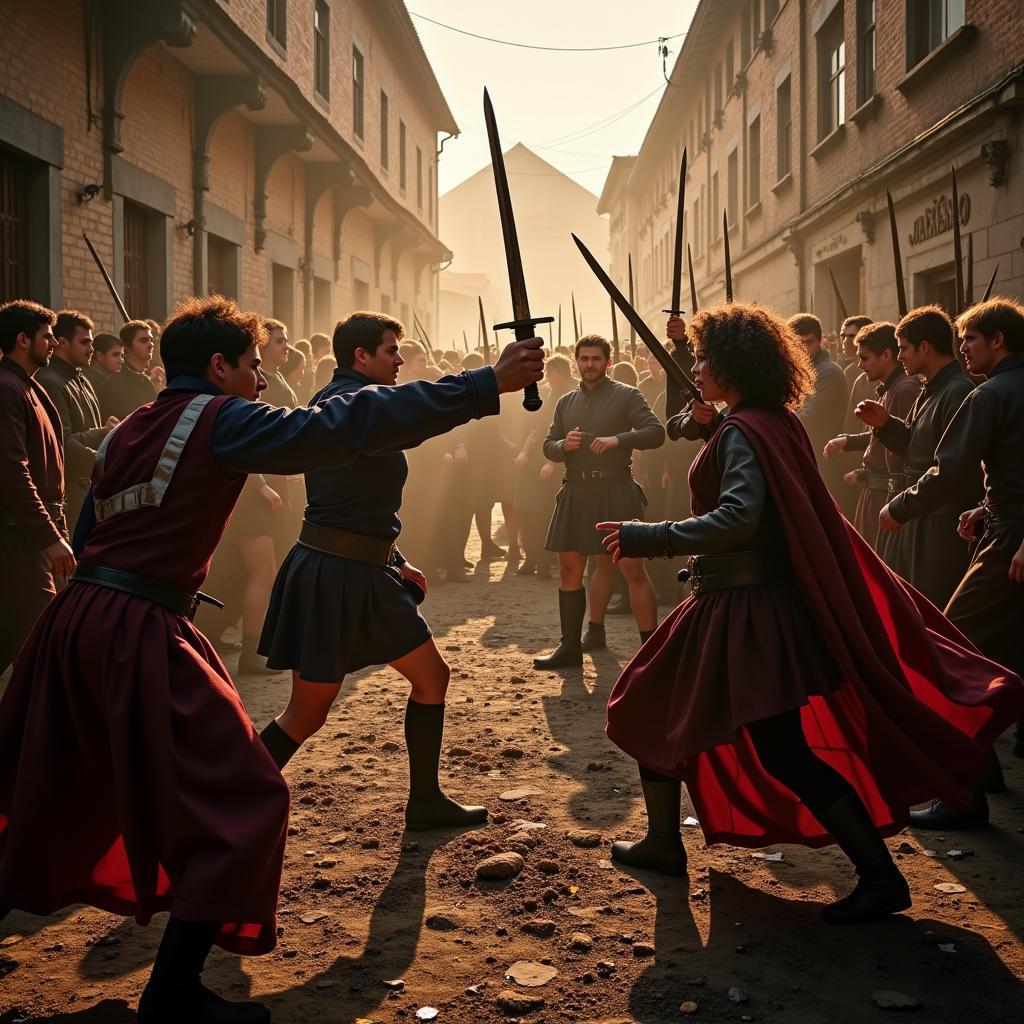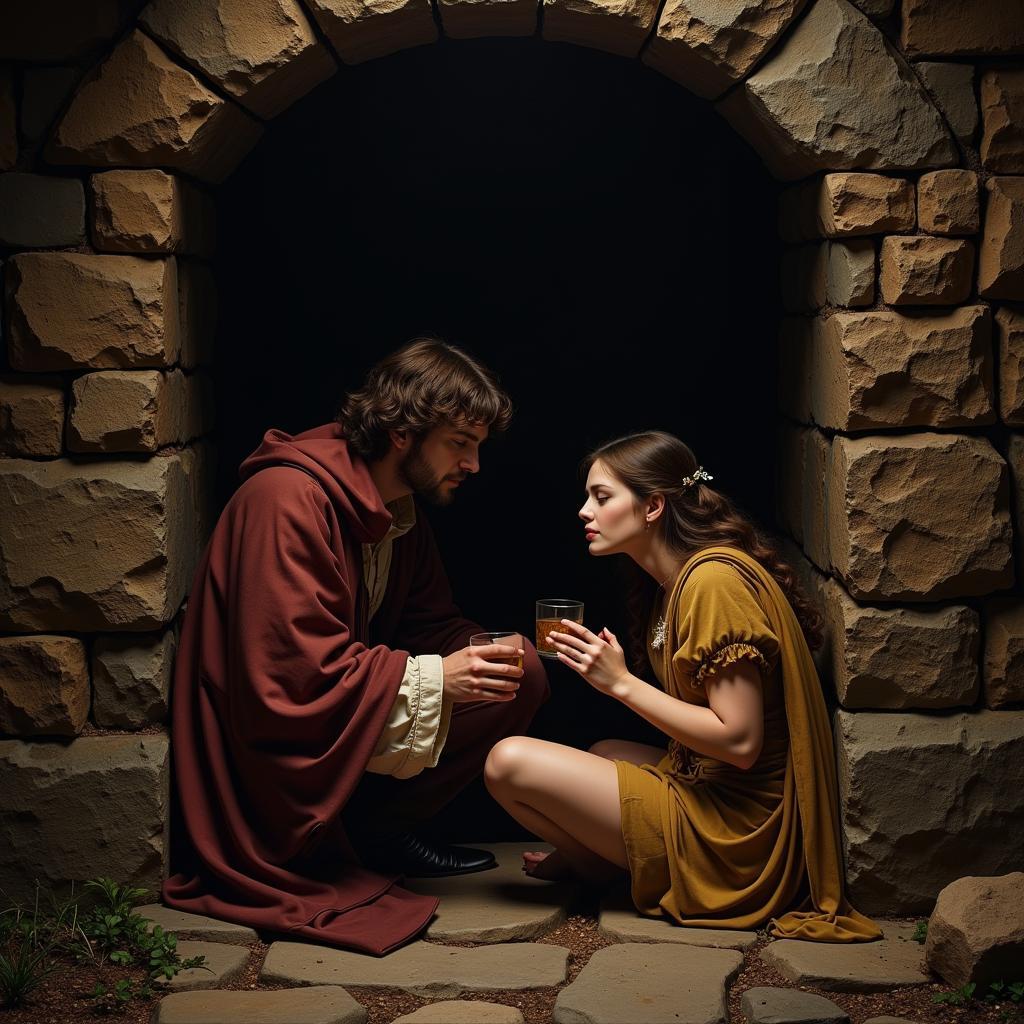The timeless tragedy of Romeo and Juliet, penned by William Shakespeare, explores the complex interplay between individual desires and societal pressures. While the play centers around the passionate love between the titular characters, it also provides a profound commentary on the conflicts that arise when personal choices clash with societal expectations. This exploration of “individual vs. society” remains strikingly relevant even centuries later, offering valuable insights into the human condition and the enduring power of social forces.
One of the most prominent themes in Romeo and Juliet is the tension between individual desire and societal dictates. Romeo and Juliet, driven by their intense love for one another, find themselves at odds with the entrenched hatred dividing their families, the Montagues and the Capulets. This age-old feud dictates who they can love, shaping their destinies long before they even meet. Their forbidden love challenges the very foundation of their society, exposing the arbitrary nature of hatred and prejudice.
 Romeo and Juliet on the balcony
Romeo and Juliet on the balcony
Furthermore, the play highlights how societal expectations can limit individual freedom and choice. Juliet, bound by the patriarchal norms of Verona, faces immense pressure to conform to her father’s wishes regarding marriage. Her arranged marriage to Paris represents societal expectations, juxtaposed against her passionate love for Romeo, which symbolizes personal desire. This conflict underscores the ways in which societal norms, particularly regarding gender roles and marriage, can restrict individual agency.
The Chorus, acting as a narrator, reinforces the theme of individual vs. society by commenting on the actions of the characters and the consequences of their choices. For instance, the Chorus describes Romeo and Juliet’s love as “star-crossed,” hinting at the influence of fate and the power of external forces shaping their lives. This emphasizes the idea that individuals, even when driven by genuine emotions and desires, are not always in control of their destinies when societal forces are at play.
 The Montagues and Capulets clashing in the streets
The Montagues and Capulets clashing in the streets
Moreover, the play explores the consequences of individual actions within a societal context. Romeo’s impulsive decision to avenge Mercutio’s death, fueled by his personal sense of loyalty and honor, ultimately leads to his banishment and sets in motion the tragic events that follow. This highlights how individual choices, even those motivated by noble intentions, can have unintended and devastating consequences within a society governed by its own laws and norms.
Throughout the play, Shakespeare utilizes various literary devices to emphasize the theme of “individual vs. society.” The use of dramatic irony, where the audience is aware of information the characters are not, heightens the tension between individual actions and societal forces. For instance, we know of Romeo and Juliet’s secret marriage, while their families remain oblivious, creating a sense of impending doom and highlighting the disconnect between their private world and the public sphere governed by societal expectations.
 Romeo and Juliet in the tomb
Romeo and Juliet in the tomb
In conclusion, Romeo and Juliet stands as a poignant exploration of the conflict between individual desires and societal pressures. The play underscores the enduring tension between personal freedom and societal constraints, revealing how societal norms and expectations can shape individual destinies in profound ways. By exploring the consequences of this conflict, Shakespeare prompts us to consider the delicate balance between individual agency and the weight of societal forces, a theme that continues to resonate deeply with audiences centuries later.